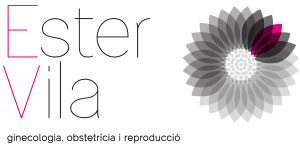Because appropriate gynaecological monitoring can save you many problems in the future, we make our experience available to you.
However old you are, take care of your health and book an appointment!
Services
- Home
- Services

Gynaecological Services
-

Family Planning
Information and guidance on contraceptive methods
-

Adolescence
- Smear tests
- Gynaecological ultrasound
- Breast examination
- Information and guidance on contraceptive methods
- Information and guidance on the human papilloma virus vaccine
-

Menopause
- Smear tests
- Gynaecological ultrasound
- Breast examination
- Mammographs (for over-40s)
-

Sexology
-

Colposcopy
Inspection of the neck of the uterus using special dyes and a colopscope to examine those patients who need it in more detail.
-

Diagnostic and surgical endoscopy
-

Diagnostic and surgical hysteroscopy
For the diagnosis and treatment of uterine fibroids, post menopausal bleeding, polyps, etc.
-

Gynaecological oncology – Breast oncology
Gynaecological oncology: In conjunction with Dr E. Álvarez (Head of Gynaecological Services at the Dr. Josep Trueta Teaching Hospital, Girona). We will provide an accurate diagnosis and a treatment adapted to your situation.
Diagnosis, advice and treatment of breast cancer by a multifunctional team, with Dr J. Ribas (plastic surgery) and Dr J. Dorca (oncologist).
- Breast conserving treatment in 80 % of cases
- Intraoperative reconstruction
- 1/3 of cases of breast cancer are diagnosed in women aged under 50
-

Pelvic floor – Urinary incontinence
Do you have bladder weakness?
Don’t feel embarrassed or let it affect your daily life; remember that over 30 % of women have urinary incontinence.
The recovery or rehabilitation of the pelvic floor is generally done with physiotherapy exercises with the aim of toning the perineal muscles. In conjunction with Dr F. Montero, we will advise you on the best treatment for you.

We have all necessary tests for high-quality monitoring of pregnancy (obstetric ultrasound, echocardiography, amniocentesis, genetics, etc.)
A blood analysis will be performed in each trimester to determine the results depending on the stage in the pregnancy.
Serveis Obstetrícia
-

Monitoring of normal pregnancy
-

Monitoring of high-risk pregnancy
-

Triple test
Triple screening: a non-invasive test based on an analysis of the mother’s blood that allows us to detect the most frequent chromosomal abnormalities (Down’s syndrome, Edward’s syndrome and Patau syndrome) with high sensitivity and specificity.
-

Prenatal diagnosis (diagnostic amniocentesis)
Amniocentesis: an invasive test that makes it possible to detect chromosomal abnormalities with precision. This involves removing a sample of amniotic fluid by inserting a needle into the abdomen under ultrasound control and analysing it to detect chromosomal abnormalities that might cause, amongst other conditions, Down’s syndrome.
-

High resolution ultrasound
Ultrasound: a non-invasive test that allows us to confirm the diagnosis of pregnancy, calculate the number of weeks, check that there is no illness or abnormality, identify possible deformities of the foetus, discover the sex of the baby and see foetal movements.
-

3D-4D Ultrasound
3D-4D Ultrasound: see your future child’s face in three dimensions, in real time and in movement. This is performed abdominally, like traditional ultrasounds, and allows us to observe the foetus, its movements and its gestures.
-

Postpartum monitoring

We recommend a full fertility examination if:
- Your partner (if you have one) and you have been trying for a baby for more than six months (one year if the woman is aged over 35).
- Your partner, you or both have a medical history of infertility.
- Your partner, you or both suffer from hereditary illnesses.
- You have had more than two miscarriages.
- You would like a second medical opinion.
Fertility problems currently affect 15 % of the population. Fortunately, 90 % of fertility problems can be diagnosed and most of them can be treated and resolved.
When a couple are struggling to get pregnant it is important to visit a specialist for an accurate diagnosis and to find the best solution in each case. We will carry out the most comprehensive examination available with the aim of finding out what is stopping you from becoming a mother, resolving it and helping you to achieve your goal.
A gynaecological check-up including:
- Evaluation of your medical history and your lifestyle.
- Performing a comprehensive gynaecological examination.
A gynaecological ultrasound (general assessment and antral follicle count).
A blood test between the 3rd and 5th day of your cycle to measure the presence of anti-Müllerian hormone (AMH), FSH, Estradiol and basal TSH.
A spermiogramme (if you have a male partner).
If your partner has to have a spermiogramme, he must abstain for 3-5 days before attending the test.
An appointment to give the results and advice on the best solution in your case.
Serveis Reproducció
-

Full female infertility examination
-

Full male infertility examination
-

Ovulation induction
-

Artificial insemination from your partner
-

Artificial insemination from a donor
